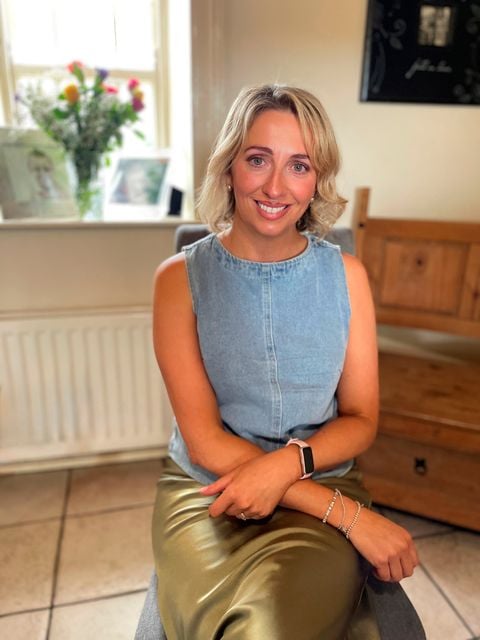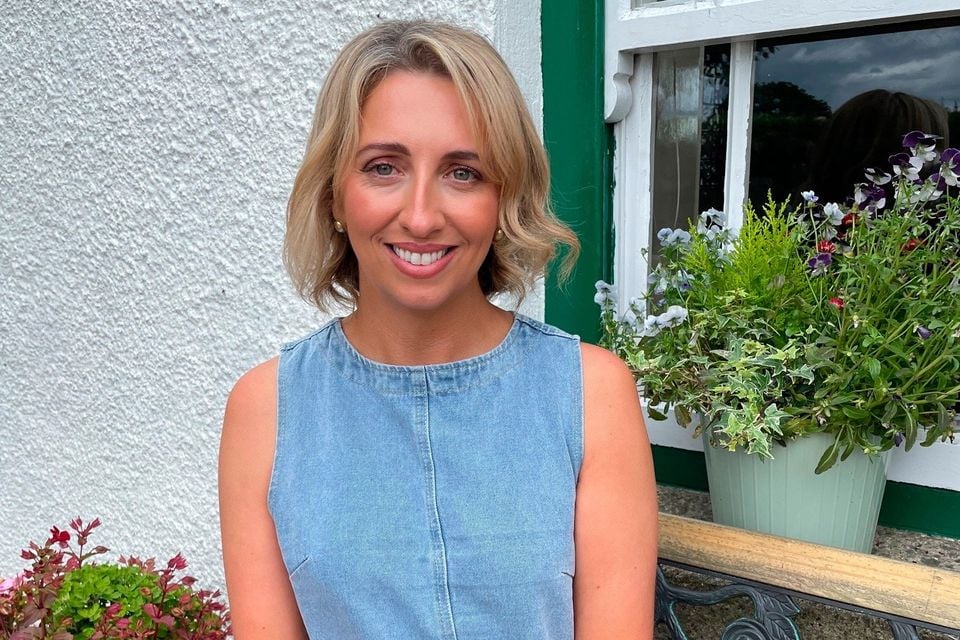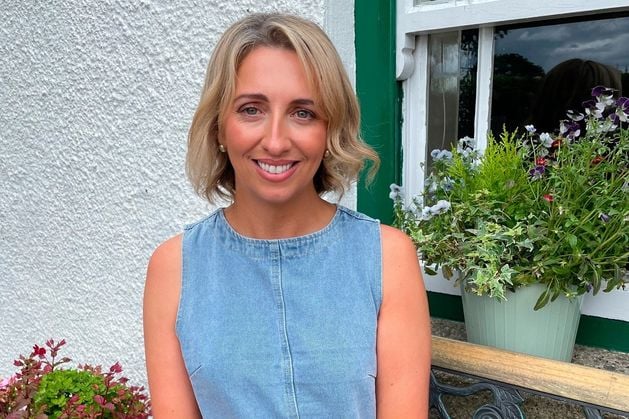Kirstie Smyth was diagnosed with sarcoma — a type of cancer that can appear anywhere on the body.
Approximately 15 people are diagnosed with the disease every day.
Kirstie’s journey began when she noticed a small, pea-sized lump behind her knee one night while sitting on her sofa.
“I went to cross my legs and felt something unusual,” the 39-year-old, who lives in Ballymartin, Co Down, said.
“I attended my GP, who initially thought it was a raised lymph node and nothing to be concerned about. But the lump began to grow.”
In October 2023, following an appointment at the Ulster Hospital, Kirstie received the life-changing news that she had sarcoma cancer.
“It was a massive shock, it flipped my whole world upside down,” she explained.
Her surgeon arranged a series of staging CT scans to check whether the cancer had spread.
“That was one of the hardest things to process,” she said.
“My thoughts immediately went to my children and husband, wondering what was going to happen.
“I was very lucky to have Jill, the sarcoma nurse, with me that day. She held my hand and still does.

Kirstie with her children Ollie, Amber-Rose & Ben.
“Getting the news that it had not spread felt like winning the lottery.”
Kirstie says she underwent three major surgeries over the course of 10 weeks.
These included a wide excision and a skin graft, after the initial procedure failed to achieve clear margins.
“The biggest impact for me was my mobility,” she explained.
“A large portion of the back of my knee was removed, right on the bend, so I woke up in a full leg cast and needed crutches.
“Five weeks later, I underwent further surgery for a wider incision and after that, I required further surgery again to get another skin graft put onto the back of my leg, so in 10 weeks, I had three big surgeries.
“It was very, very tough. I had not realised how dependent I would become.
“I went from being totally independent to needing help with absolutely everything.”
Kirstie also underwent 30 sessions of radiotherapy, which presented additional challenges.
“Because I could not drive, I had to rely on others to get me to the hospital every day for six weeks,” she said.
“It was physically and mentally exhausting.”
Despite the intense treatment, Kirstie continues to receive follow-up care.
‘I now attend chest X-rays every three months, because if sarcoma comes back, it often goes to the lungs,” she explained.
Yet Kirstie counts herself as one of the lucky ones.

Kirstie Smyth
“It is a mental burden, but I remind myself how lucky I am to be so closely monitored,” she said.
Kirstie dedicated her recovery to the team at Ulster Hospital, and praised consultant surgeon Harry Lewis and sarcoma clinical nurse specialist Jill Kennedy, as well as the staff on Ward 4C.
“They were amazing and with me every step of the way,” she said.
“People think when you ring the bell, the journey is over, but really, it is only just beginning.
“The aftermath can be just as tough.”
She is sharing her story in the hope of spreading awareness of sarcoma, often known as the forgotten cancer.
Kirstie added: “Many people I have talked to had never even heard of it.
“It is an aggressive cancer that can often go undetected until it has progressed. Early detection is vital and treatable.
“If you notice a lump, even if it is painless like mine, get it checked. Ask the question. Do not be afraid to push for answers.
“A lump that is getting bigger should never be ignored.”

Kirstie Smyth
Cat found sheltering in Newry garden has ears removed after severe sun damage
Ms Kennedy, the sarcoma clinical nurse specialist, emphasised the importance of early diagnosis.
“Many patients experience delayed diagnosis, and we are working with GPs and primary care professionals to improve symptom recognition and help patients get diagnosed earlier,” she said.
She added: “Sarcomas are rare cancers that develop in the body’s connective tissues.
“There are two main types, bone sarcomas and soft tissue sarcomas.
“Symptoms can include a lump or swelling, unexplained pain, or reduced mobility.
“As with many cancers, early detection is key.”
